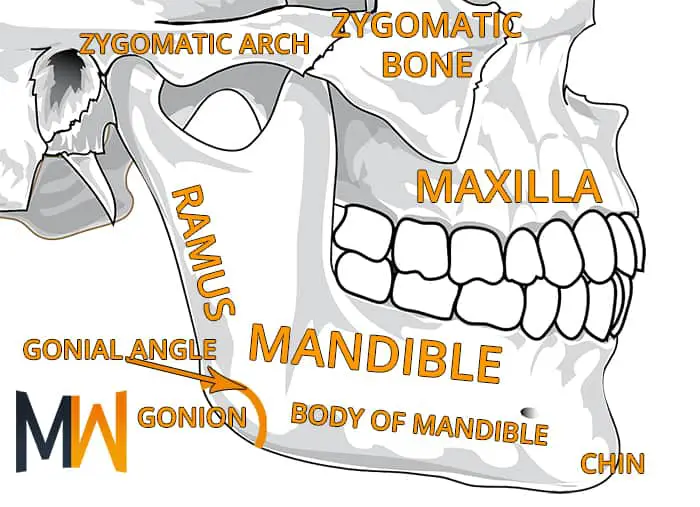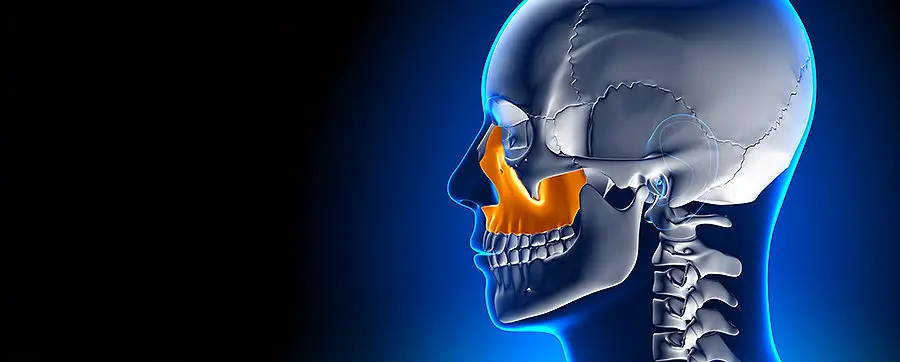
Jaw surgery is a procedure that corrects mandibular fractures, malocclusions, and other facial abnormalities. Jaw surgery usually occurs in developing countries and to males experiencing mandible trauma. Jaw surgery is also recommended for people experiencing sleep disorders, especially sleep apnea. A common concern after jaw surgery is whether or not the bone grows back.
Your bones after jaw surgery will fuse within ten days to 3 weeks, and be fully healed after three months. The average time for full recovery takes about six weeks. While you can’t get back bone that’s been removed, your bones will heal themselves to close any fractures or gaps.
Jaw Surgery
Individuals who have irregularities in the teeth or jaw bone and need realignment are the ideal candidates for jaw surgery. Although there are nonsurgical methods for fixing jaw problems, some patients are better off with an operation.
If you just need orthodontic corrections, the doctor might suggest braces. However, if no other method is available, then your doctor might recommend you get surgery.
Jaw surgery is an excellent treatment after the bone has fully developed, usually between 17-21 years old in boys and 14-16 in girls.
The operation is all done from inside the mouth, and you will not have to worry about getting facial scars. However, your surgeon might have to perform small incisions outside the mouth to perform better surgery.
Small cuts in the jaw area ensure that the bones move in the right direction. After the movement, the surgeon will need to secure them in place by using plates, screws, rubber bands, and wires.
There will be instances where the surgeon adds bone to the jaw; he’ll get this from different parts of the body, such as ribs, hips, or legs. Using screws and plates is a common practice for securing these bones.

Jaw Recovery After Surgery
Naturally, you will feel discomfort and pain after jaw surgery. You may need to take time off work or a break from your usual routine.
Here are some tips that can help you with recovering after jaw surgery.
Keep an Open Line With Your Surgeon.
Almost all people who underwent jaw surgery have a ton of questions for their surgeon. Ensure that you keep your surgeon’s phone number or email address so you can directly address your concerns.
Less Talking
You might find talking very uncomfortable. You might not be able to speak at all right after the surgery since you will not have the energy to do so. Be patient, because your ability to talk fast and clear like before will come back as you recover completely.
Expect to Experience Discomfort
We’re not describing pain here, but you will feel a large level of discomfort, even a few weeks after the surgery.
If you’re recovering in a hospital, keep in mind that you are well-surrounded by medical professionals highly trained to assist you in every way. Stay strong, as this will pass.
Manage Swelling
You may opt to take hot showers as the steam helps with inflammation. You can also try simple exercises with your lips, such as puckering and opening wide.
Taking brisk walks a couple of minutes a day also helps. Some surgeons advise that returning to your normal routine helps speed up recovery. However, you should not force yourself into strenuous activities.
Cold and Warm Compress
Applying cold or warm compresses will depend on the advice of your surgeon. Some will ask you to use a cold compress for the first 36 hours and a warm compress after 36 hours.
Cold: Reduces blood flow and inflammation
Warm: Increases blood flow and inflammation.
Inflammation is necessary for healing but when it gets out of control is when it can be more harmful than helpful.
Dry Skin Concerns
It’s normal for your skin to be a bit dry after 1-2 weeks of the surgery. You can use a moisturizer on your face and lips.
Eating and Swallowing
Eating and swallowing will feel uncomfortable. If you’re still in a hospital, they will put you on a liquid diet. Broth and soft food will be your main source of sustenance for weeks.
While you’re at home, you can opt for milk or any liquid drinks with lots of nutrients, such as Pedialyte.

Who Needs Jaw Surgery?
Jaw Trauma & Injury
If you come across an accident that injured your jaw, the best way to restore the jaw appearance and its function is jaw surgery.
Severe Jaw Pain
Having a tremendous amount of pain in the jaw is common for people who experience lock-jaw; even slowly opening the jaw is very uncomfortable.
Keep in mind that the occasional popping of the jaw is normal and should not be a cause of concern. But if your jaw locks together with swelling and pain, you should check with your doctor as surgery might be a recommendation.
Asymmetrical Jawline
Some people either have protruding or receding jawlines, and the only solution to this is getting jaw surgery. An asymmetrical jawline only means that the bones in your jaw have developed more in some areas.
Adulthood is the best time to perform corrective jaw surgery. Children can opt to use headgear, retainers, and braces.
Improper Bites
Teeth misalignment is the number one cause of improper bites. The jaw bone structure is directly related to your teeth structure.
Jaw surgery can help cross bites, open, under, and overbites. The first step to correcting your bite is using braces and retainers and, if not fixed, will require jaw surgery.

JAW SURGERY FAQ
What is the best way to sleep after surgery?
Make sure that your head is not at the same height as the rest of your body. You can do this by using extra pillows. It’s also advisable to sleep in a reclining chair.
When can I start chewing after surgery?
You will be required to have a soft diet for the first few weeks after jaw surgery. After about six weeks, you can start eating food that will require chewing.
What will be the fastest way to recover from jaw surgery?
There will be no shortcuts since jaw surgery is considered pretty major. Getting plenty of rest, nutrition, and staying hydrated helps in faster recovery.
How bad is jaw surgery?
How bad jaw surgery is all depends on why a jaw surgery is needed. If you experienced facial trauma due to an accident, you might risk having your entire lower jaw removed.
If the jaw surgery is only for corrections, then it won’t be as bad. It’s needed to improve your jaw functions.
Will other parts of my face change because of jaw surgery?
There should be no visible changes in the other parts of your face after the jaw surgery, aside from your jaw.

